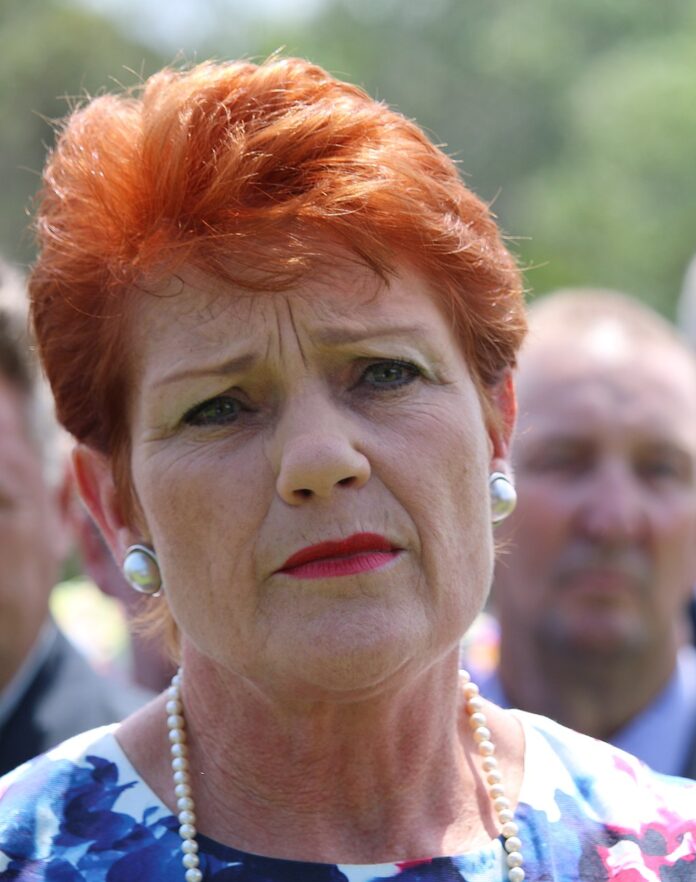Pauline Hanson plans to appeal a ruling against her, while Labor proposes significant reforms to ease student debt burdens in Australia
In a striking display of political determination, Pauline Hanson, leader of One Nation, has announced her intention to appeal a recent ruling that found her comments racially vilifying. This decision comes amidst a flurry of scrutiny regarding politicians’ accountability and ethical standards. The ruling has sparked a heated debate on the limits of free speech within Australia’s political landscape, intensifying the discourse around racial sensitivity and public discourse.
Hanson’s announcement follows a tumultuous week, during which several politicians faced backlash over their travel practices, igniting discussions about the ethical obligations of public representatives. With a history of provocative statements, Hanson’s latest comments have landed her in hot water, leading to the court ruling against her. However, she remains steadfast, claiming her words were misinterpreted and vowing to contest the decision in court.
As she prepares to take her case to a higher authority, Hanson’s stance has garnered support from her party base, who see her as a champion of free speech. “I will not be silenced,” Hanson declared in a recent interview, asserting her commitment to challenge what she perceives as an infringement on her right to express her views. This resolve resonates with her supporters, many of whom echo her sentiments about the need for greater political accountability in the face of what they describe as a politically correct climate.
Embed from Getty ImagesIn parallel with Hanson’s legal battles, the Australian government is moving forward with significant reforms to the Higher Education Contribution Scheme (HECS). These proposed changes aim to alleviate the burden of student debt, potentially slashing tens of thousands of dollars from what graduates owe. The government’s initiative is a response to rising concerns about the financial strains faced by students and the ongoing debates about access to education.
Under the proposed plan, the government seeks to lower the costs associated with higher education, making it more accessible to a broader segment of the population. Education Minister has expressed that these reforms are designed to empower students and ensure that financial barriers do not prevent talented individuals from pursuing their dreams. “We are committed to creating a fairer system that supports students in their educational journeys,” the Minister stated.
The response from the public has been largely positive, with many students and graduates welcoming the news as a much-needed relief in an increasingly competitive job market. As the cost of living continues to rise, the promise of reduced debt has ignited hopes for a brighter financial future among young Australians. The government’s commitment to reforming the HECS system comes at a time when many are grappling with the aftereffects of the pandemic and its impact on their educational and career aspirations.
However, the news is not without its challenges. Some critics have raised concerns about the sustainability of these reforms and whether they will truly address the root causes of student debt. As discussions unfold, stakeholders across the political spectrum are weighing in on the potential implications of the proposed changes, questioning how they will affect the broader educational landscape.
Amidst these developments, the political climate remains charged. Politicians from various parties are now scurrying to review their travel logs and ensure compliance with ethical standards. Following allegations that Prime Minister Anthony Albanese accepted complimentary flight upgrades from Qantas, calls for an independent inquiry have intensified. Observers argue that such scrutiny is essential to restore public trust in elected officials and ensure transparency within the government.
The PwC scandal, which has come to light in recent weeks, further exemplifies the growing demand for accountability among corporate and political entities alike. The revelations regarding unethical practices within PwC Australia have raised eyebrows, prompting discussions about regulatory oversight and the need for stricter guidelines governing political donations and corporate influence.
As the nation grapples with these multifaceted issues, the focus remains on ensuring that politicians adhere to the highest standards of conduct. With calls for a review of travel practices and increased scrutiny on financial dealings, it is clear that the demand for integrity in politics is resonating across the electorate.
Hanson’s appeal against the vilification ruling, combined with Labor’s push for HECS reform, underscores a pivotal moment in Australian politics. Both developments reflect broader societal conversations about race, accountability, and access to education. As these narratives unfold, the electorate remains attentive, eager to see how the political landscape will evolve in response to these pressing issues.
In the wake of these significant announcements, one thing is certain: the future of Australian politics will likely be shaped by the interplay of accountability, free speech, and the ongoing quest for educational reform.
